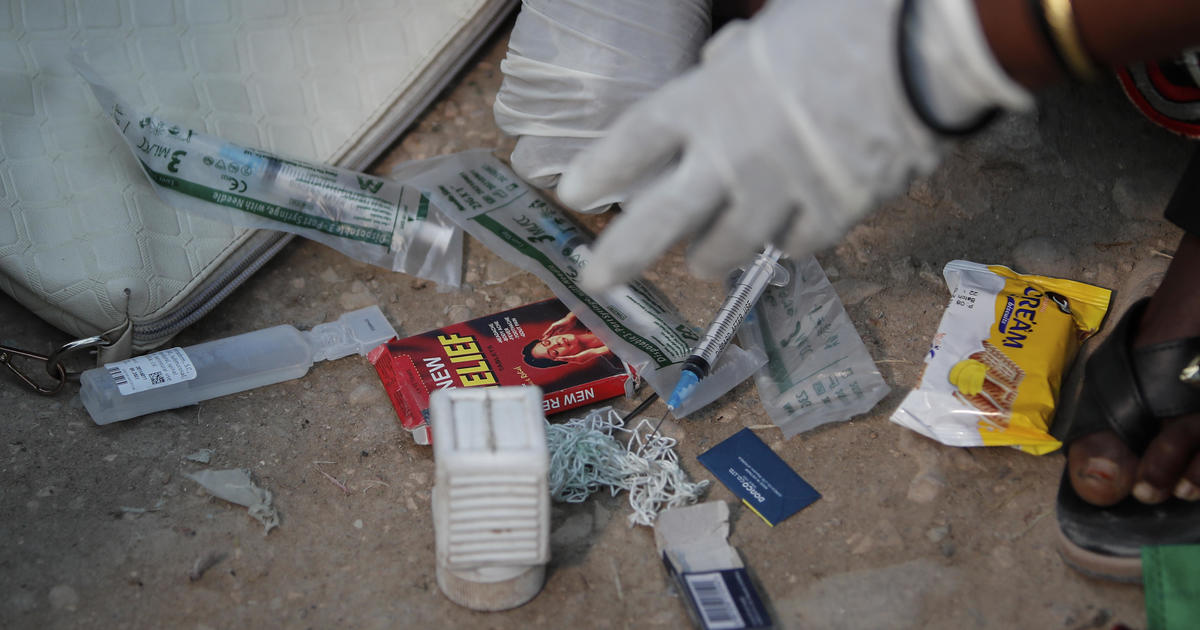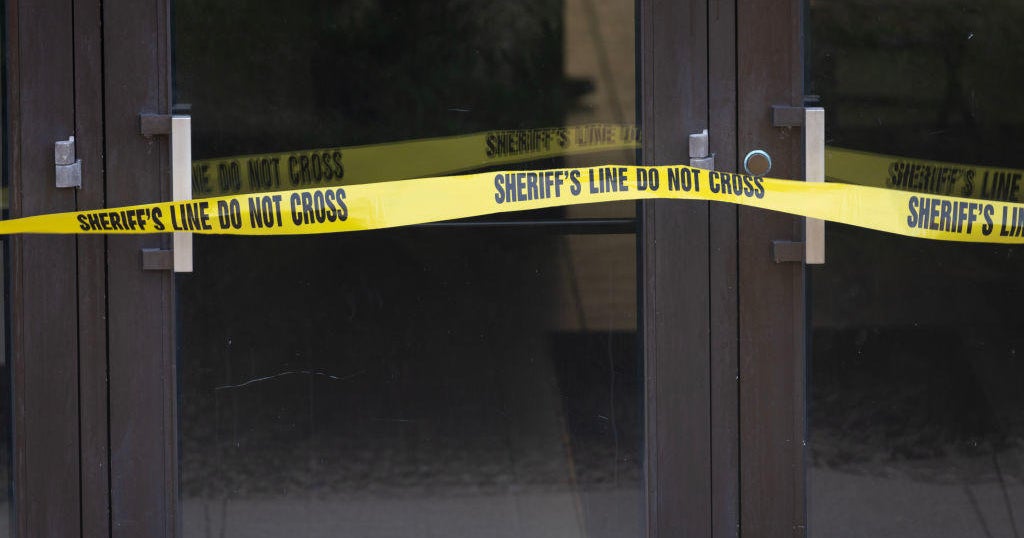CBS News
Gambia may become first nation to reverse female genital mutilation ban

Errekunda, Gambia — Lawmakers in Gambia will vote Monday on legislation that seeks to repeal a ban on female genital mutilation, or FGM, which would make the West African nation the first country anywhere to make that reversal. The procedure, which also has been called female genital cutting, includes the partial or full removal of external genitalia, often by traditional community practitioners with tools such as razor blades or at times by health workers.
Often performed on young girls, the procedure is incorrectly believed to control a woman’s sexuality and can cause serious bleeding and death. It remains a widespread practice in parts of Africa.
Jaha Dukureh, the founder of Safe Hands for Girls, a local group that aims to end the practice, told The Associated Press she worried that other laws safeguarding women’s rights could be repealed next. Dukureh underwent the procedure and watched her sister bleed to death.
Brian Inganga/AP
“If they succeed with this repeal, we know that they might come after the child marriage law and even the domestic violence law. This is not about religion but the cycle of controlling women and their bodies,” she said. The United Nations has estimated that more than half of women and girls ages 15 to 49 in Gambia have undergone the procedure.
The bill is backed by religious conservatives in the largely Muslim nation of less than 3 million people. Its text says that “it seeks to uphold religious purity and safeguard cultural norms and values.” The country’s top Islamic body has called the practice “one of the virtues of Islam.”
Gambia’s former leader, Yahya Jammeh, banned the practice in 2015 in a surprise to activists and with no public explanation. Since the law took effect, enforcement has been weak, with only two cases prosecuted.
On Monday, a crowd of men and women gathered outside Gambia’s parliament, some carrying signs protesting the bill. Police in riot gear held them back.
Gambia’s parliament of 58 lawmakers includes five women. If the bill passes on Monday’s second reading, it is expected to pass a third and final review before President Adama Barrow is expected to sign it into law.
The United States has supported activists who are trying to stop the practice. Earlier this month, it honored Gambian activist Fatou Baldeh at the White House with an International Women of Courage Award.
Susan Walsh/AP
The U.S. embassy in Gambia declined to say whether any high-level U.S. official in Washington had reached out to Gambian leaders over the bill. In its emailed statement, Geeta Rao Gupta, the top U.S. envoy for global women’s issues, called it “incredibly important” to listen to the voices of survivors like Baldeh.
The chairperson of the local Center for Women’s Rights and Leadership, Fatou Jagne Senghore said the bill is “aimed at curtailing women’s rights and reversing the little progress made in recent years.”
The president of the local Female Lawyers Association, Anna Njie, said the practice “has been proven to cause harm through medical evidence.”
UNICEF said earlier this month that some 30 million women globally have undergone the procedure in the past eight years, most of them in Africa but some in Asia and the Middle East.
More than 80 countries have laws prohibiting the procedure or allowing it to be prosecuted, according to a World Bank study cited this year by a United Nations Population Fund Q&A published earlier this year. They include South Africa, Iran, India and Ethiopia.
“No religious text promotes or condones female genital mutilation,” the UNFPA report says, adding there is no benefit to the procedure.
Girls are subjected to the procedure at ages ranging from infancy to adolescence. Long term, it can lead to urinary tract infections, menstrual problems, pain, decreased sexual satisfaction and childbirth complications as well as depression, low self-esteem and post-traumatic stress disorder.
CBS News
12/18: CBS Evening News – CBS News

Watch CBS News
Be the first to know
Get browser notifications for breaking news, live events, and exclusive reporting.
CBS News
Wisconsin school shooter was in contact with California man plotting his own attack, court documents say

The shooter who killed a student and teacher at a religious school in Wisconsin brought two guns to the school and was in contact with a man in California whom authorities say was planning to attack a government building, according to authorities and court documents that became public Wednesday.
Police were still investigating why the 15-year-old student at Abundant Life Christian School in Madison shot and killed a fellow student and teacher on Monday before shooting herself, Madison Police Chief Shon Barnes told the Associated Press Wednesday. Two other students who were shot remained in critical condition on Wednesday.
A Southern California judge issued a restraining order Tuesday under California’s gun red flag law against a 20-year-old Carlsbad man. The order requires the man to turn his guns and ammunition into police within 48 hours unless an officer asks for them sooner because he poses an immediate danger to himself and others.
Carlsbad is located just north of San Diego.
According to the order, the man told FBI agents that he had been messaging Natalie Rupnow, the Wisconsin shooter, about attacking a government building with a gun and explosives. The order doesn’t say what building he had targeted or when he planned to launch his attack. It also doesn’t detail his interactions with Rupnow except to state that the man was plotting a mass shooting with her.
CBS’ San Diego affiliate KFMB-TV reported that law enforcement searched the man’s home Tuesday night after the order was signed by the judge.
Police, with the assistance of the FBI, were scouring online records and other resources and speaking with the shooter’s parents and classmates in an attempt to determine a motive for the shooting, Barnes told the AP.
Police don’t know if anyone was targeted in the attack or if the attack had been planned in advance, the chief said. Police said the shooting occurred in a classroom where a study hall was taking place involving students from several grades.
“I do not know if if she planned it that day or if she planned it a week prior,” Barnes said. “To me, bringing a gun to school to hurt people is planning. And so we don’t know what the premeditation is.”
On a Madison city website providing details about the shooting, police disclosed Wednesday that two guns were found at the school, but only one was used in the shooting. A law enforcement source previously told CBS News the weapon used appears to have been a 9 mm pistol.
Barnes told the AP that he did not know how the suspected shooter obtained the guns and he declined to say who purchased them, citing the ongoing investigation.
No decisions have been made about whether Rupnow’s parents might be charged in relation to the shooting, but they have been cooperating, Barnes told the AP.
Abundant Life is a nondenominational Christian school that offers prekindergarten classes through high school. About 420 students attend the institution.
The Dan County Medical Examiner’s Office identified the two people killed Wednesday as 42-year-old Erin West and 14-year-old Rubi Vergara.
An online obituary on a local funeral site stated Vergara was a freshman who leaves behind her parents, one brother, and a large extended family. It described her as “an avid reader” who “loved art, singing and playing keyboard in the family worship band.”
West’s exact position with the school was unclear.
CBS News
12/18: The Daily Report – CBS News

Watch CBS News
Be the first to know
Get browser notifications for breaking news, live events, and exclusive reporting.










